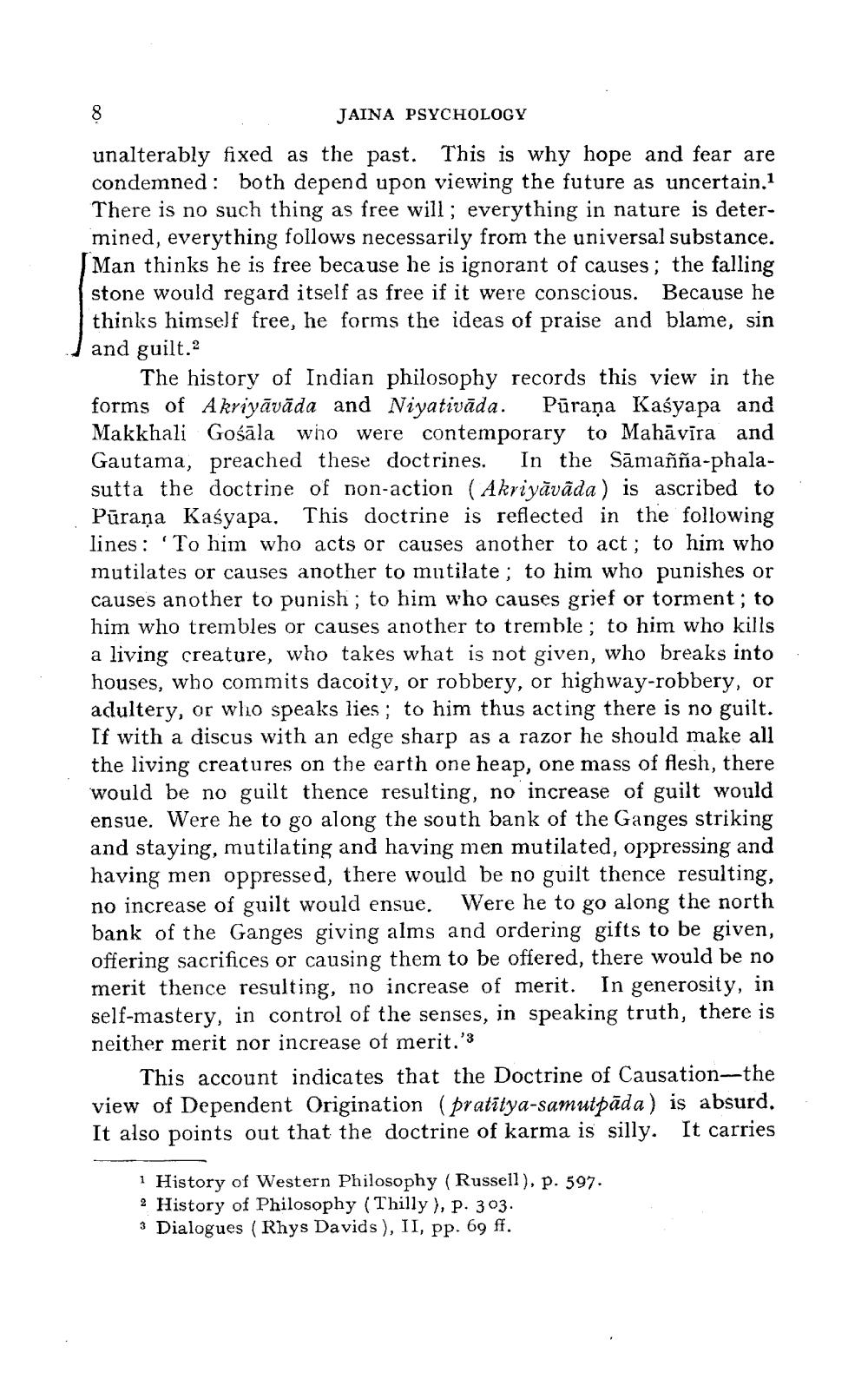________________
JAINA PSYCHOLOGY
unalterably fixed as the past. This is why hope and fear are condemned: both depend upon viewing the future as uncertain.1 There is no such thing as free will; everything in nature is determined, everything follows necessarily from the universal substance. Man thinks he is free because he is ignorant of causes; the falling stone would regard itself as free if it were conscious. Because he thinks himself free, he forms the ideas of praise and blame, sin and guilt.2
The history of Indian philosophy records this view in the forms of Akriyāvāda and Niyativada. Pūraṇa Kasyapa and Makkhali Gośāla who were contemporary to Mahāvīra and Gautama, preached these doctrines. In the Samañña-phalasutta the doctrine of non-action (Akriyāvāda) is ascribed to Pūraṇa Kasyapa. This doctrine is reflected in the following lines: To him who acts or causes another to act; to him who mutilates or causes another to mutilate; to him who punishes or causes another to punish; to him who causes grief or torment; to him who trembles or causes another to tremble; to him who kills a living creature, who takes what is not given, who breaks into houses, who commits dacoity, or robbery, or highway-robbery, or adultery, or who speaks lies; to him thus acting there is no guilt. If with a discus with an edge sharp as a razor he should make all the living creatures on the earth one heap, one mass of flesh, there would be no guilt thence resulting, no increase of guilt would ensue. Were he to go along the south bank of the Ganges striking and staying, mutilating and having men mutilated, oppressing and having men oppressed, there would be no guilt thence resulting, no increase of guilt would ensue. Were he to go along the north bank of the Ganges giving alms and ordering gifts to be given, offering sacrifices or causing them to be offered, there would be no merit thence resulting, no increase of merit. In generosity, in self-mastery, in control of the senses, in speaking truth, there is neither merit nor increase of merit.'s
This account indicates that the Doctrine of Causation-the view of Dependent Origination (pratitya-samutpāda) is absurd. It also points out that the doctrine of karma is silly. It carries
1 History of Western Philosophy (Russell), p. 597.
2 History of Philosophy (Thilly), p. 303.
3 Dialogues (Rhys Davids), II, pp. 69 ff.




